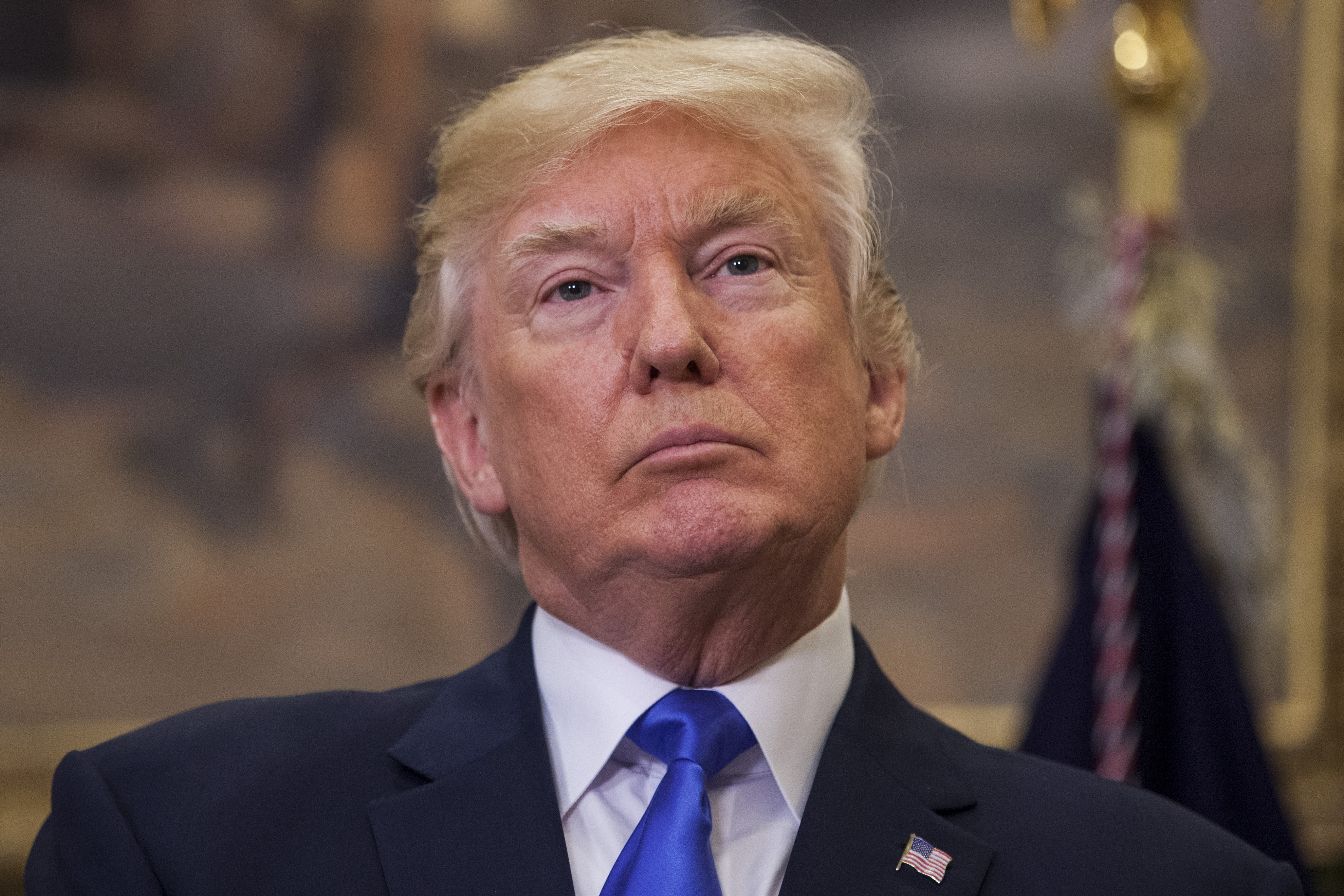Tax returns for former President Donald Trump and his wife Melania show they reported negative income in four of the six years between 2015 and 2020.
In three of those years, 2015, 2016 and 2017, the Trumps reported an income tax liability of just $750, a House Ways and Means Committee report revealed.
The Democratic-controlled panel voted 24-16 along party lines Tuesday night to release the Trumps’ tax returns after a legal battle that began in 2016.
The full release of the statements is expected in the coming days after all personal information is removed.
In the six-year period covered by the returns, the Trumps’ adjusted gross income totaled negative $53.2 million, and their total federal tax liability, including self-employment and household employment taxes, was $4.4 million. of dollars.
The Trumps reported positive adjusted gross income in just two of those six years: $24.3 million in 2018 and $4.4 million in 2019.
In those years, the then-first couple’s tax bill increased, according to the report, with the Trumps paying nearly $1 million in taxes in 2018 and $133,445 in 2019.
In 2020, as the coronavirus pandemic swept across the country, the Trumps reported a $4.8 million loss and paid $0 in federal taxes.
The release of the statements is the continuation of a protracted legal fight that began in April 2019 and went all the way to the Supreme Court.
The panel’s 29-page executive summary also shows that the IRS failed to conduct a mandatory audit of Donald Trump’s tax returns during the first two years in office as the 45th president, circumventing a requirement that dates back to 1977 following controversy. on former President Richard Nixon’s taxes.
The IRS only began examining the former president’s individual tax return for 2015, the year he announced his candidacy, on April 3, 2019, the same day the committee’s chairman, Democrat Richard Neal, sent a letter to the agency. federal for information on returns.
More than five months later, in September 2019, the report says, the agency selected Trump’s 2016 statement for a mandatory audit.
Individual returns from 2017, 2018 and 2019 were not selected for examination until after the former president left office.
The committee released no evidence that Trump has tried to directly influence the IRS or discourage the agency from reviewing his tax information, but its report found problems with the agency’s approach to audits.
Specifically, the IRS agents in charge of the audits repeatedly failed to bring in specialists experienced in evaluating the complicated structure of Trump’s estates.
They often determined that a limited review was warranted because Trump hired a firm of professional accountants who they assumed would ensure that Trump “correctly reported all income and deductions.”
“The Committee hoped that these mandatory audits would be completed promptly and in accordance with IRS policies,” Neal said in a statement Tuesday. “We anticipated that the IRS would expand the mandatory audit program to account for the complex nature of the former president’s financial situation, but we found no evidence of that. This is a huge failing by the IRS under the previous administration, and certainly not what we expected to find.
“But the evidence is clear,” Neal said. “Congress must intervene.”
In response to the committee’s investigation, Neal has proposed legislation that would standardize the IRS’s approach, requiring an initial report no later than 90 days after a president’s tax returns are filed. The bill is unlikely to go anywhere with just days to go until the end of the Congressional session and Republicans take control of the House on January 3.
Trump, 76, who announced last month that he will run for president again in 2024, became the first White House candidate in four decades to refuse to voluntarily disclose his tax returns during his 2016 campaign, citing a alleged audit.
In September 2020, The New York Times reported that Trump was facing an IRS audit potentially tied to a $72.9 million tax refund stemming from $700 million in losses he claimed in 2009.
Documents released Tuesday indicate that Trump continued to collect tax benefits from those losses through 2018.

